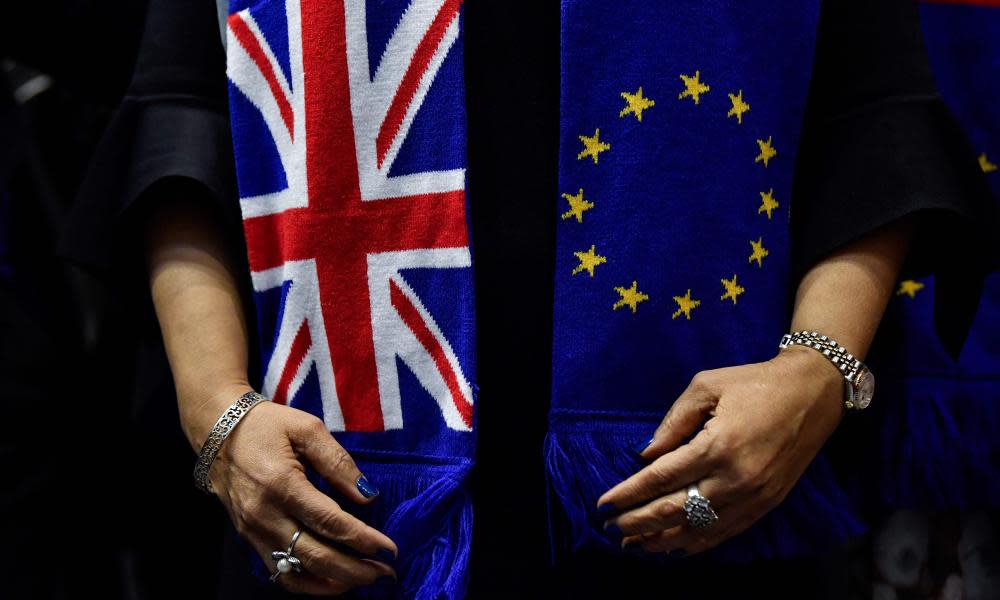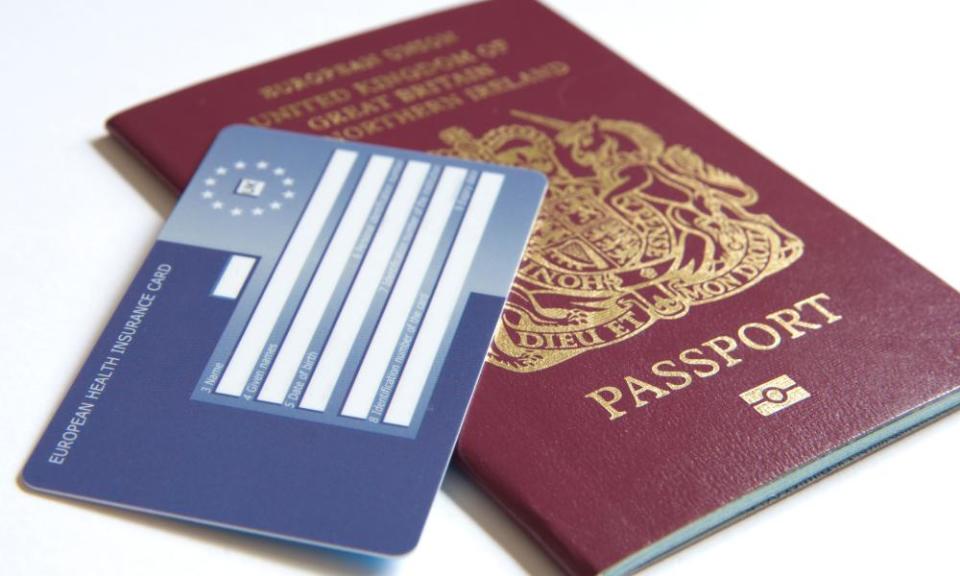Brexit: what will change for Britons in the EU on 1 January?

The end of the Brexit transition period on 31 December is looming, and with it some major changes for anyone going from the UK to Europe – either to holiday, work or live. Some have been confirmed but others are dependent on continuing negotiations over a deal.
UK state pensions
If you already live in the EU and draw a state pension from the UK, your payments will go up each year in line with the triple lock – that is the rate of inflation, average earnings or 2.5%, whichever is highest. Even if you do not claim a pension yet, when you start doing so you will get the same as if you lived in the UK and this will hold for your lifetime.
Related: 'It's impossible': how Brexit has left British families unable to return to the UK
British in Europe, a coalition of campaign groups for British nationals settled or about to live in the EU, has put together a useful set of guides on benefits and their future.
Remember the rules will apply to any EU citizen, British or otherwise, who has paid their national contributions in the UK. If you have worked in several countries, your contributions will be aggregated and payable just as they are now under the withdrawal agreement signed in January.
For anyone who moves to the EU after January, you will still be able to claim your UK state pension, but how much you get will depend on the outcome of the talks. A draft agreement on social security drawn up by the UK government puts forward a system whereby pensioners in the EU will receive the same as if they had remained in Britain.
If you are moving to Ireland, you will still benefit from the annual rise.
Healthcare
One of the issues that has not been settled yet is that of reciprocal healthcare. UK citizens living in the EU before the end of 2020, and EU citizens living in the UK, will still be entitled to access healthcare as they do currently. But anyone relocating after that could find the situation is different unless a deal is agreed.
Only some groups will definitely continue to benefit from free healthcare. These are Irish citizens moving to the UK and UK citizens moving to Ireland; students studying in the EU; and people who hold an S1 form from the UK, which is for pensioners and people receiving certain state benefits.
Ehic cards
Currently anyone on a temporary stay in the EU should get a European health insurance card (Ehic) from the UK government; with this, you will be able to access treatment while you are in the EU. But after the transition period, an Ehic issued in the UK will not be valid.
This applies to EU nationals living in the UK as the entitlement flows from tax residency not birth nationality. The UK is seeking a like-for-like replacement scheme with the EU as a whole, but nothing has been signed off yet.

The good news is that after December 2020 the scheme will still work for some groups of people from the UK. These include students studying in the EU, who can get a card that is valid only in the country where they are studying. Also, if you are living in the EU before the end of 2020, you will be allowed an Ehic card issued in that country that will be valid in the UK and elsewhere.
Travel insurance
When it is possible to travel again without Covid restrictions, if there are no arrangements in place you will need to make sure you have travel insurance. Currently cheaper policies come with the proviso that you need an Ehic card, and the provider will not expect to pay out for treatment you could get using that. If you have an annual policy you plan to rely on, you need to make sure it is not affected.
The Association of British Insurers is warning consumers that travel insurance policies could be more costly if Ehic is not continued or replaced. Its website says: “In the absence of the Ehic or similar reciprocal health agreement, insurers will inevitably see an increase in claims costs – this could have a direct impact on the prices charged to consumers. This will vary depending on the provider.”
Driving in Europe
If you are planning a trip to Europe that involves driving, under current arrangements you will need some extra documents when you go. Anyone driving their own vehicle will need to have a so-called green card – this is proof that you are insured and you get it from your car insurer. Make sure you ask for it a month before you plan to travel.
You may also need an international driving permit (IDP) to drive in some countries, although it is not yet clear which states may ask for it – currently no EU countries are on the list. The IPD costs £5.50 and is available from post offices.
Pet passports
The UK has applied to become a “listed country”, which will allow pets to be moved between it and the EU almost as freely as now. But if this is not approved, travelling with your pet will become much harder if you live in England, Scotland or Wales. Moving a pet between Northern Ireland and the EU will continue to be as easy as it is currently.
The current pet passport scheme is to end, and you will need to get an animal health certificate when you want to travel overseas. This will involve waiting three months after a blood sample has been taken from your pet, so journeys will involve a lot more planning.
Roaming charges
Under EU law mobile phone providers are not allowed to charge customers extra for making calls from a different country in the bloc. But as of January, customers from the UK will not be covered by this rule. The big providers, Three, EE, O2 and Vodafone, have all said they have no plans to introduce roaming charges, but if they wanted to change their policies this would be allowed.
The only protection travellers would have from big bills is under a new UK rule on unexpected charges – this applies a financial cap on mobile data usage overseas. Under the rule, which comes into force on 1 January, customers will not be able to spend more than £45 a month on mobile data services when roaming without actively opting in to use more. They will be alerted when they are at 80% and 100% of usage.
Customers in Northern Ireland will have an extra protection against inadvertent roaming in Ireland– this can happen near borders when a phone links to a mast in a different country. Providers will be obliged to help customers avoid these charges, and may offer special tariffs or messaging when people inadvertently roam.

 Yahoo Movies
Yahoo Movies 
